Description
ABSTRACT
Disruptive Technology and the Fintech Industry in Nigeria: Imperatives for Legal and Policy Responses
Oluwaseun V Ojo* and Ugo Nwaokike**
From faster payments to online lending and distributed ledgers, Financial Technology (popularly referred to as Fintech) is radically revolutionalising the way and manner in which we conduct our businesses and carry on with our daily activities concerning finances and financing initiatives. It is invariably impacting on every aspect of our lives, ranging from the payment for services rendered, merchant activities, lending platforms, banking services, crypto-currencies, wealth or finance management, mobilisation of funds, to mention a few. There is no doubt that the emergence of Fintech is a direct product of the evolution of the age of disruptive and digital technology or innovation, offering innovative products and services to consumers and stakeholders across the entire financial ecosystem. It is common that any innovation comes various issues or risks associated with the system and some of the problems relating to the Fintech industry are regulatory uncertainties affecting investors’ participation, hostility from Financial Services (FS) incumbents, poor data protection, terrorism financing, money laundering, cybercrimes, identity theft or fraud, business and financial crimes. These issues coupled with the increasing and sustained interest for a collaborative and inclusive process of stakeholders’ engagement in this emerging area, has led to the echoing demands for the government and the regulators as an important stakeholder in the Fintech ecosystem to enact relevant legislation and issue applicable guidelines and regulations for all stakeholders in the Fintech industry. It is in the light of this that this paper examines the concept of Fintech and the evolution of the industry in Nigeria within the global business and commercial landscape whilst highlighting the various associated issues affecting the industry and the manner the law is expected to respond to them. The paper also examines the legal and regulatory framework for the Fintech industry in the United Kingdom and the United States and draws out relevant and invaluable lessons for the development of the industry in Nigeria intending to fashioning out a viable legal and regulatory framework for the Nigerian Fintech industry.
Keywords: Fintech industry, Disruptive technology, Disruptive innovation, Legal and regulatory framework, Stakeholders, Nigerian economy.
INTRODUCTION
Without a doubt, what started as a means of communicating beyond borders, sharing views or entertainment has broadened its paraphernalia to include every facet of daily human life. From the World Wide Web (WWW), it has expanded to social media, mobile applications, virtual reality, robotics, smart devices, IT, data mining, cloud storage/computing and Fintech. Indeed, the mining and effective utilisation of technology has sprung innovations and, in its wake, new world leaders in politics finance and businesses have emerged either as individuals or nations. Presently, this system is creating a shift in the ordinary man’s perspective on the mode of conducting financial activities through disruptive Fintech inventions. The traditional method of effectuating finance transactions might be plagued with extinction or a need to metamorphose into a combination of digital and offline mechanics.
* Oluwaseun VOjo LL.B, BL. Associate at Olaniwun Ajayi LP, Lagos.
** Ugo Nwaokike LL.B, BL. Associate at Punuka Attorneys & Solicitors, Lagos.
THE GRAVITAS REVIEW OF BUSINESS & PROPERTY LAW VOL.9 NO.3

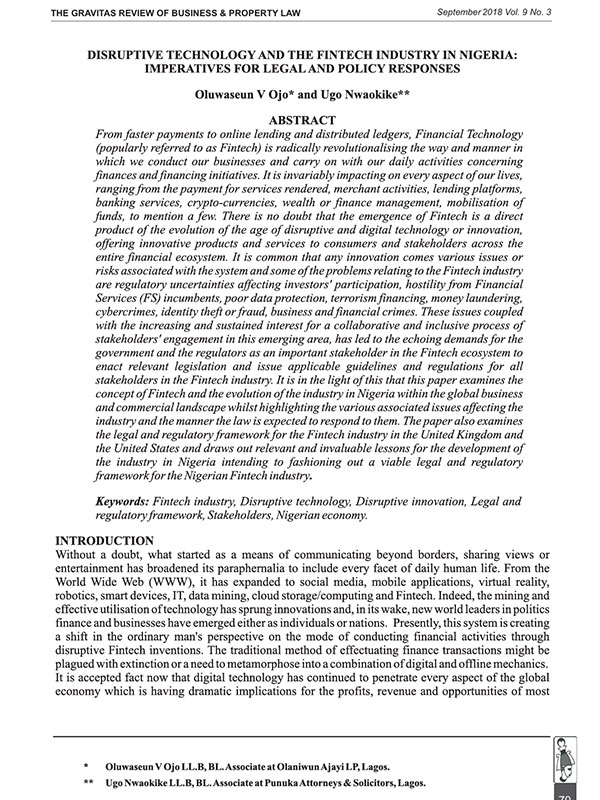
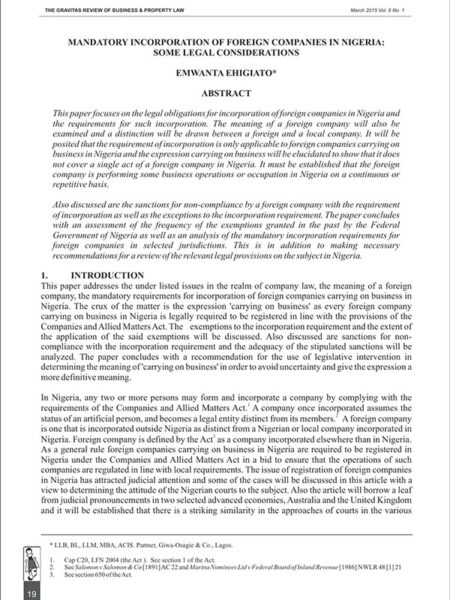
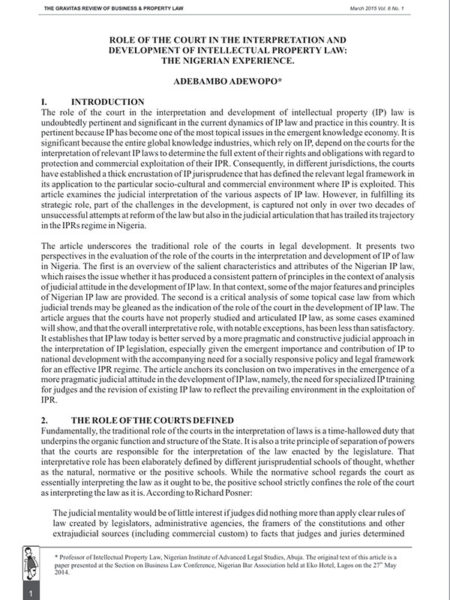
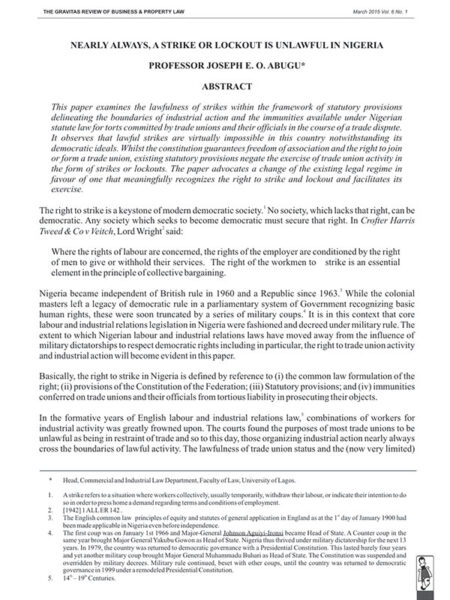
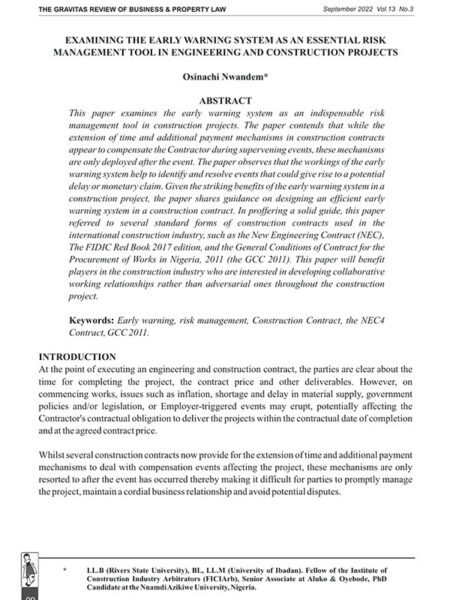


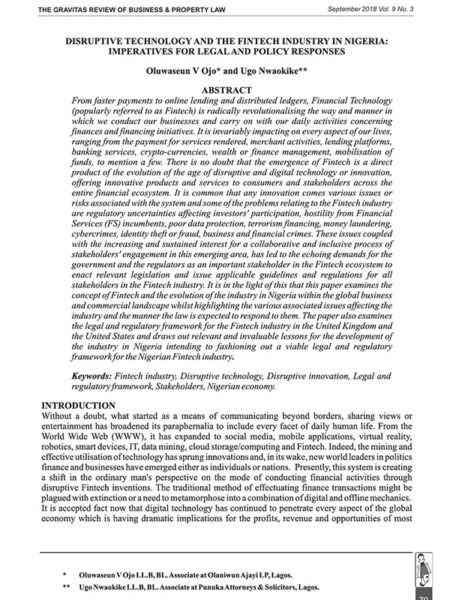
Reviews
There are no reviews yet.